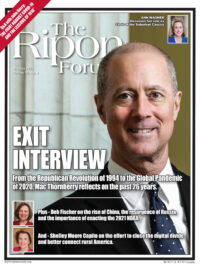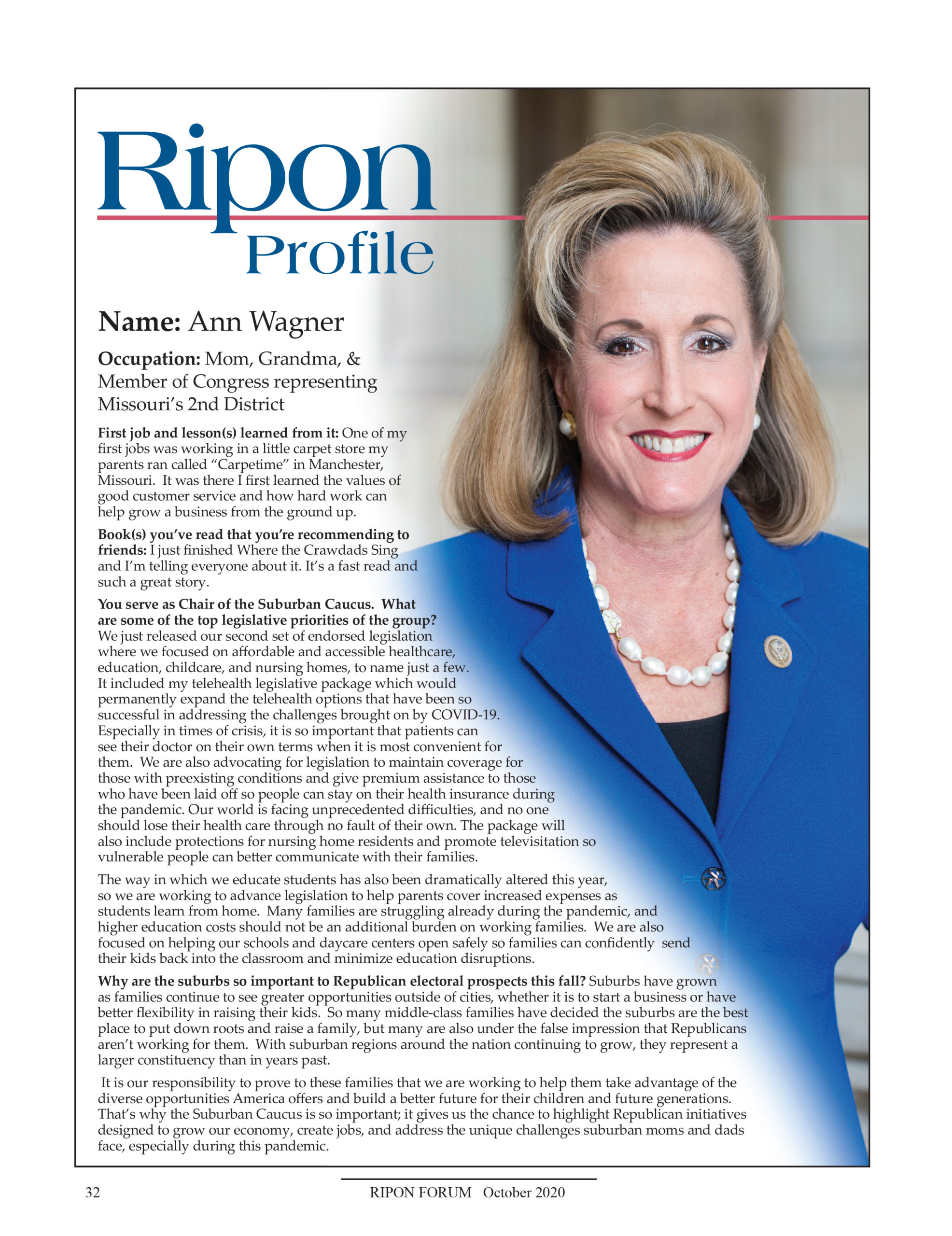Name: Ann Wagner
Occupation: Mom, Grandma, & Member of Congress representing Missouri’s 2nd District
First job and lesson(s) learned from it: One of my first jobs was working in a little carpet store my parents ran called “Carpetime” in Manchester, Missouri. It was there I first learned the values of good customer service and how hard work can help grow a business from the ground up.
Book(s) you’ve read that you’re recommending to friends: I just finished Where the Crawdads Sing and I’m telling everyone about it. It’s a fast read and such a great story.
You serve as Chair of the Suburban Caucus. What are some of the top legislative priorities of the group? We just released our second set of endorsed legislation where we focused on affordable and accessible healthcare, education, childcare, and nursing homes, to name just a few. It included my telehealth legislative package which would permanently expand the telehealth options that have been so successful in addressing the challenges brought on by COVID-19. Especially in times of crisis, it is so important that patients can see their doctor on their own terms when it is most convenient for them. We are also advocating for legislation to maintain coverage for those with preexisting conditions and give premium assistance to those who have been laid off so people can stay on their health insurance during the pandemic. Our world is facing unprecedented difficulties, and no one should lose their health care through no fault of their own. The package will also include protections for nursing home residents and promote televisitation so vulnerable people can better communicate with their families.
The way in which we educate students has also been dramatically altered this year, so we are working to advance legislation to help parents cover increased expenses as students learn from home. Many families are struggling already during the pandemic, and higher education costs should not be an additional burden on working families. We are also focused on helping our schools and daycare centers open safely so families can confidently send their kids back into the classroom and minimize education disruptions
Why are the suburbs so important to Republican electoral prospects this fall? Suburbs have grown as families continue to see greater opportunities outside of cities, whether it is to start a business or have better flexibility in raising their kids. So many middle-class families have decided the suburbs are the best place to put down roots and raise a family, but many are also under the false impression that Republicans aren’t working for them. With suburban regions around the nation continuing to grow, they represent a larger constituency than in years past.
It is our responsibility to prove to these families that we are working to help them take advantage of the diverse opportunities America offers and build a better future for their children and future generations. That’s why the Suburban Caucus is so important; it gives us the chance to highlight Republican initiatives designed to grow our economy, create jobs, and address the unique challenges suburban moms and dads face, especially during this pandemic.





